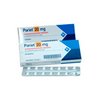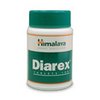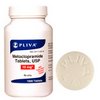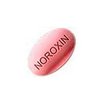INDICATIONS
Noroxin is used for treating bacterial infections. Noroxin is a fluoroquinolone antibiotic. It works by killing sensitive bacteria.
INSTRUCTIONS
Use Noroxin as directed by your doctor.
- Take Noroxin by mouth on an empty stomach at least 1 hour before or 2 hours after a meal or eating or drinking milk or other dairy products.
- Take Noroxin with a full glass of water (8 oz/240 mL).
- Drinking extra fluids while you are taking Noroxin is recommended. Check with your doctor for instructions.
- Do not take any products containing magnesium, aluminum, calcium, iron, or zinc (eg, antacids, quinapril, vitamins/minerals); didanosine; sucralfate; or bismuth subsalicylate within 2 hours before or 2 hours after taking Noroxin.
- To clear up your infection completely, take Noroxin for the full course of treatment. Keep taking it even if you feel better in a few days.
- Do not miss any dose. If you miss a dose of Noroxin, take it as soon as possible. If it is almost time for your next dose, skip the missed dose and go back to your regular dosing schedule. Do not take 2 doses at once.
Ask your health care provider any questions you may have about how to use Noroxin.
STORAGE
Store Noroxin at 77 degrees F (25 degrees C). Brief storage at temperatures between 59 and 86 degrees F (15 and 30 degrees C) is permitted. Store away from heat, moisture, and light. Do not store in the bathroom. Do not freeze. Keep Noroxin out of the reach of children and away from pets.
MORE INFO:
Active Ingredient: Norfloxacin.
Do NOT use Noroxin if:
- you are allergic to any ingredient in Noroxin or to another fluoroquinolone (eg, levofloxacin)
- you have inflammation of a tendon (tendonitis) or a history of ruptured tendon caused by Noroxin or another fluoroquinolone (eg, levofloxacin)
- you are taking certain antiarrhythmic medicines (eg, amiodarone, procainamide, quinidine, sotalol) or nitrofurantoin.
Contact your doctor or health care provider right away if any of these apply to you.
Some medical conditions may interact with Noroxin. Tell your doctor or pharmacist if you have any medical conditions, especially if any of the following apply to you:
- if you are pregnant, planning to become pregnant, or are breast-feeding
- if you are taking any prescription or nonprescription medicine, herbal preparation, or dietary supplement
- if you have allergies to medicines, foods, or other substances
- if you have a stomach infection, liver problems, brain or nervous system problems, muscle problems (eg, myasthenia gravis), increased pressure in the brain, Alzheimer disease, brain blood vessel problems, or a history of seizures
- if you have a history of severe or persistent diarrhea, skin sensitivity to the sun, recent heart attack, blood problems (eg, anemia, hemolysis), or glucose-6-phosphate dehydrogenase (G6PD) problems
- if you have personal or family history of irregular heartbeat (eg, QT prolongation), heart problems (eg, slow heartbeat), or low blood potassium levels
- if you have a history of joint or tendon problems; rheumatoid arthritis; kidney problems or decreased kidney function; or heart, kidney, or lung transplant
- if you take a corticosteroid (eg, prednisone) or participate in strenuous physical work or exercise.
Some medicines may interact with Noroxin. Tell your health care provider if you are taking any other medicines, especially any of the following:
- Antiarrhythmics (eg, amiodarone, disopyramide, dofetilide, quinidine, sotalol), cisapride, diuretics (eg, furosemide, hydrochlorothiazide), macrolide or ketolide antibiotics (eg, erythromycin, telithromycin), medicines for mental or mood disorders, medicines that may affect your heartbeat, phenothiazines (eg, chlorpromazine), or tricyclic antidepressants (eg, amitriptyline) because the risk of serious side effects, including irregular heartbeat and other heart problems, may be increased. Check with your doctor or pharmacist if you are unsure if any of your medicines may affect your heartbeat
- Nonsteroidal anti-inflammatory drugs (NSAIDs) (eg, ibuprofen) because the risk of side effects, such as seizures, may be increased
- Corticosteroids (eg, prednisone) because risk of tendon damage may be increased
- Probenecid because it may increase the risk of Noroxin's side effects
- Nitrofurantoin because it may decrease Noroxin's effectiveness
- Anticoagulants (eg, warfarin), caffeine, clozapine, cyclosporine, methotrexate, ropinirole, serotonin norepinephrine reuptake inhibitors (eg, venlafaxine), sulfonylureas (eg, glyburide), tacrine, theophyllines, or tizanidine because the risk of their side effects may be increased by Noroxin
- Live vaccines or mycophenolate because their effectiveness may be decreased by Noroxin.
This may not be a complete list of all interactions that may occur. Ask your health care provider if Noroxin may interact with other medicines that you take. Check with your health care provider before you start, stop, or change the dose of any medicine.
Important safety information:- Noroxin may cause drowsiness, dizziness, or lightheadedness. These effects may be worse if you take it with alcohol or certain medicines. Use Noroxin with caution. Do not drive or perform other possible unsafe tasks until you know how you react to it.
- Tell your doctor or dentist that you take Noroxin before you receive any medical or dental care, emergency care, or surgery.
- Be sure to use Noroxin for the full course of treatment. If you do not, the medicine may not clear up your infection completely. The bacteria could also become less sensitive to this or other medicines. This could make the infection harder to treat in the future.
- Long-term or repeated use of Noroxin may cause a second infection. Tell your doctor if signs of a second infection occur. Your medicine may need to be changed to treat this.
- Noroxin only works against bacteria; it does not treat viral infections (eg, the common cold).
- Avoid large amounts of food or drink that have caffeine (eg, chocolate, cocoa, coffee, cola, tea).
- If you experience pain or swelling of a tendon or weakness or loss of use of a joint area, notify your doctor right away. Rest the area and avoid exercise until instruction from your doctor.
- Diabetes patients - Noroxin may affect your blood sugar. Check blood sugar levels closely. Ask your doctor before you change the dose of your diabetes medicine.
- Noroxin may cause you to become sunburned more easily. Avoid the sun, sunlamps, or tanning booths until you know how you react to Noroxin. Use a sunscreen or wear protective clothing if you must be outside for more than a short time.
- Mild diarrhea is common with antibiotic use. However, a more serious form of diarrhea (pseudomembranous colitis) may rarely occur. This may develop while you use the antibiotic or within several months after you stop using it. contact your doctor right away if stomach pain or cramps, severe diarrhea, or bloody stools occur. Do not treat diarrhea without first checking with your doctor.
- Noroxin may cause changes in certain heart tests (eg, electrocardiogram [ECG]). Be sure to your doctor and lab personnel know you are using Noroxin.
- Lab tests, including complete blood cell counts and liver and kidney function tests, may be performed while you use Noroxin. These tests may be used to monitor your condition or check for side effects. Be sure to keep all doctor and lab appointments.
- Use Noroxin with caution in the elderly; they may be more sensitive to its effects (eg, tendon problems), especially if they take corticosteroids (eg, prednisone). They may also be more sensitive to other effects (eg, irregular heartbeat).
- Noroxin should be used with extreme caution in children younger 18 years; safety and effectiveness in these children have not been confirmed. The risk of joint and tendon problems may be increased in children.
- Pregnancy and breast-feeding: If you become pregnant, contact your doctor. You will need to discuss the benefits and risks of using Noroxin while you are pregnant. It is not known if Noroxin is found in breast milk. Do not breastfeed while taking Noroxin.
All medicines may cause side effects, but many people have no, or minor, side effects.
Check with your doctor if any of these most common side effects persist or become bothersome:
Diarrhea; dizziness; headache; loss of appetite; nausea; stomach upset or cramps; vomiting.
Seek medical attention right away if any of these severe side effects occur:
Severe allergic reactions (rash; hives; itching; difficulty breathing; tightness in the chest; swelling of the mouth, face, lips, or tongue); bloody or tarry stools; burning, numbness, tingling, pain, or weakness of the arms, hands, legs, or feet; change in sense of touch or temperature; chest pain; dark urine or change in amount of urine; decreased amount of urine; fainting; fever, chills, or unusual cough; hallucinations; hearing changes (eg, ringing in the ears, hearing loss); inability to move or bear weight on a joint or tendon area; irregular heartbeat; joint pain or swelling; moderate to severe sunburn; mood or mental changes (eg, new or worsening anxiety, agitation, confusion, depression, restlessness, sleeplessness); muscle pain or weakness; pain, soreness, redness, swelling, weakness, or bruising of a tendon or joint area; pale stools; persistent sore throat; red, swollen, blistered, or peeling skin; seizures; severe or persistent dizziness; severe or persistent diarrhea; severe stomach pain or cramps; suicidal thoughts or actions; tremors; unusual bruising or bleeding; unusual fatigue; vaginal yeast infection; vision changes; yellowing of the skin or eyes.
This is not a complete list of all side effects that may occur. If you have questions about side effects, contact your health care provider.
 BiaxinBiaxin is used to treat many different types of bacterial infections affecting the skin and respiratory system. It is also used together with other medicines to treat stomach ulcers caused by Helicobacter pylori.as low as $2.67
BiaxinBiaxin is used to treat many different types of bacterial infections affecting the skin and respiratory system. It is also used together with other medicines to treat stomach ulcers caused by Helicobacter pylori.as low as $2.67 ParietPariet is used for the treatment of stomach ulcers, ulcers in the duodenum (the area of the small intestine that lies just after the stomach), the symptoms of gastroesophageal reflux disease. as low as $0.45
ParietPariet is used for the treatment of stomach ulcers, ulcers in the duodenum (the area of the small intestine that lies just after the stomach), the symptoms of gastroesophageal reflux disease. as low as $0.45 AllopurinolAllopurinol is used for treating gout and to treat high uric acid levels in the blood or urine caused by certain types of cancer chemotherapy.as low as $0.75
AllopurinolAllopurinol is used for treating gout and to treat high uric acid levels in the blood or urine caused by certain types of cancer chemotherapy.as low as $0.75 DiarexThe antibacterial and astringent actions of Diarex regularize bowel movements and are effective in the management of diarrhea or dysentery. as low as $34.91
DiarexThe antibacterial and astringent actions of Diarex regularize bowel movements and are effective in the management of diarrhea or dysentery. as low as $34.91 MotiliumMotilium is used for stopping feelings of sickness (nausea) and being sick (vomiting) in adults and children. It is also used for relieving stomach discomfort, fullness or bloating and regurgitation of stomach contents (reflux or heartburn) in adults.as low as $0.3
MotiliumMotilium is used for stopping feelings of sickness (nausea) and being sick (vomiting) in adults and children. It is also used for relieving stomach discomfort, fullness or bloating and regurgitation of stomach contents (reflux or heartburn) in adults.as low as $0.3 MetoclopramideMetoclopramide is used for short term treatment of gastroesophageal reflux disease (GERD) in certain patients who do not respond to other therapy.as low as $0.62
MetoclopramideMetoclopramide is used for short term treatment of gastroesophageal reflux disease (GERD) in certain patients who do not respond to other therapy.as low as $0.62